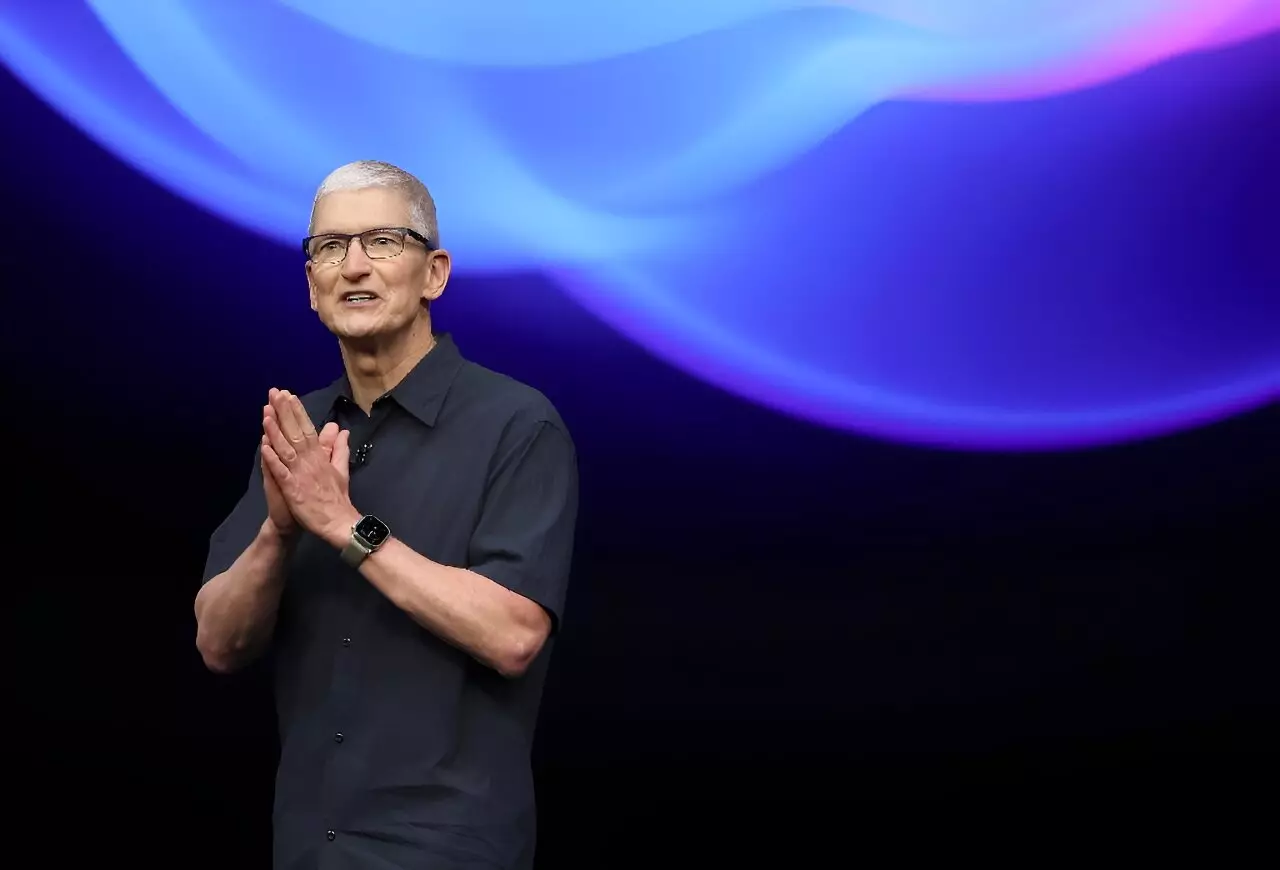Apple recently unveiled its highly anticipated iPhone 16, a device specifically designed to harness the power of generative artificial intelligence. This new release is part of Apple’s strategy to drive sales and establish itself as a frontrunner in the competitive technology landscape. With billions in sales each quarter, the iPhone continues to be a key revenue generator for Apple, serving as a gateway to its array of services like the App Store and Apple TV.
According to Apple CEO Tim Cook, the iPhone 16 represents a significant milestone in the company’s journey towards “Apple Intelligence.” This innovative approach aims to revolutionize consumer AI and unlock new possibilities for users. Analysts like Dan Ives believe that Cupertino will play a pivotal role in shaping the future of AI and technology with this release.
Apple’s recent focus on artificial intelligence culminated in the unveiling of its Apple Intelligence suite of software features. These capabilities were introduced at the company’s annual developers conference, alongside a strategic partnership with OpenAI. By leveraging AI technology, Apple aims to enhance user experiences through image editing, translation, and other creative functionalities.
In addition to the iPhone 16, Apple is set to integrate AI capabilities into its popular accessories like AirPods and Apple Watch. These new devices are expected to leverage AI to deliver personalized and intuitive interactions for users. The company’s commitment to innovation extends beyond hardware upgrades, signaling a shift towards a more intelligent and responsive ecosystem.
Tech experts predict that the integration of artificial intelligence could fundamentally transform the iPhone experience. With the potential for a “super-powered Siri” that seamlessly integrates with all apps, Apple is poised to revolutionize how users interact with their devices. This long-term vision reflects Apple’s ambition to go beyond incremental improvements and set new standards for intelligent technology.
Apple’s announcement coincides with Google’s own foray into AI with the release of the Pixel 9 smartphones. While Google aims to challenge Apple’s market dominance, Samsung has also been investing in AI across its product lineup. The evolving landscape of AI-driven devices underscores the growing importance of artificial intelligence in shaping the future of consumer technology.
Apple’s introduction of the iPhone 16 represents a significant leap forward in the integration of artificial intelligence into everyday devices. By harnessing the power of AI, Apple is not only enhancing the capabilities of its products but also paving the way for a more intelligent and intuitive user experience. As the tech industry continues to evolve, the intersection of AI and consumer electronics will play a defining role in shaping the future of technology.


Leave a Reply